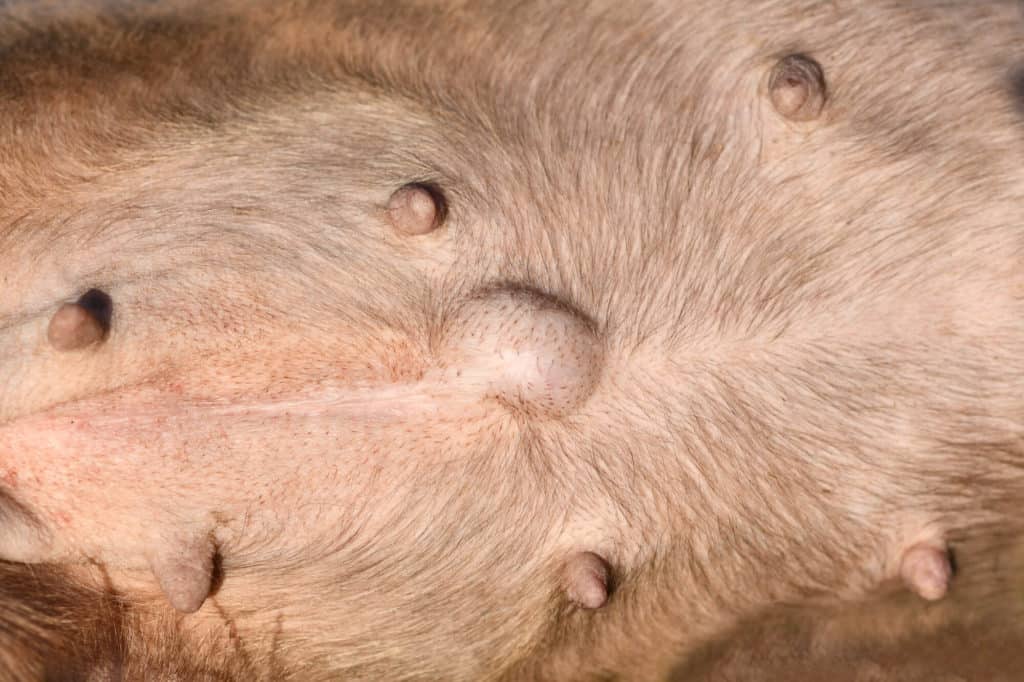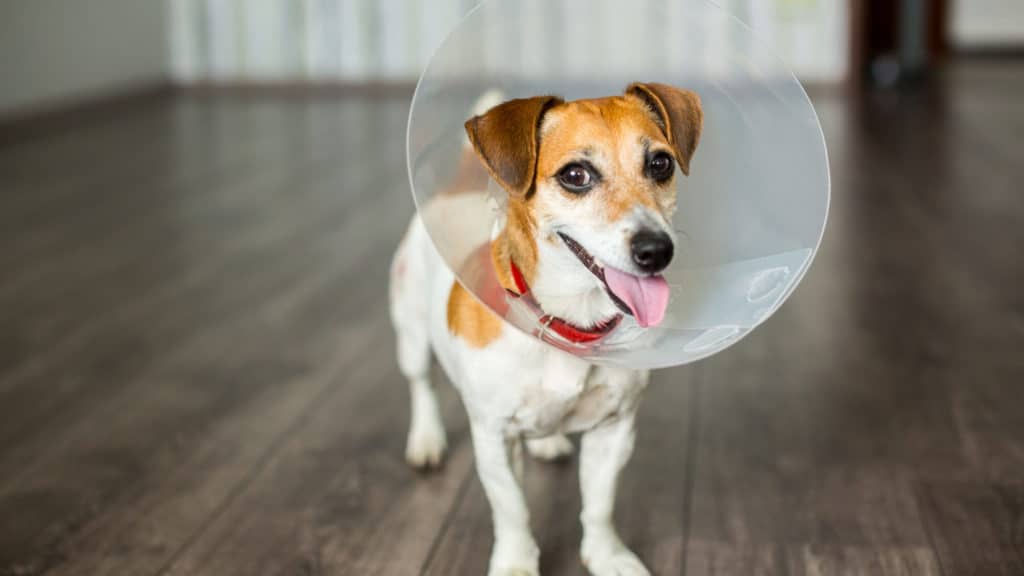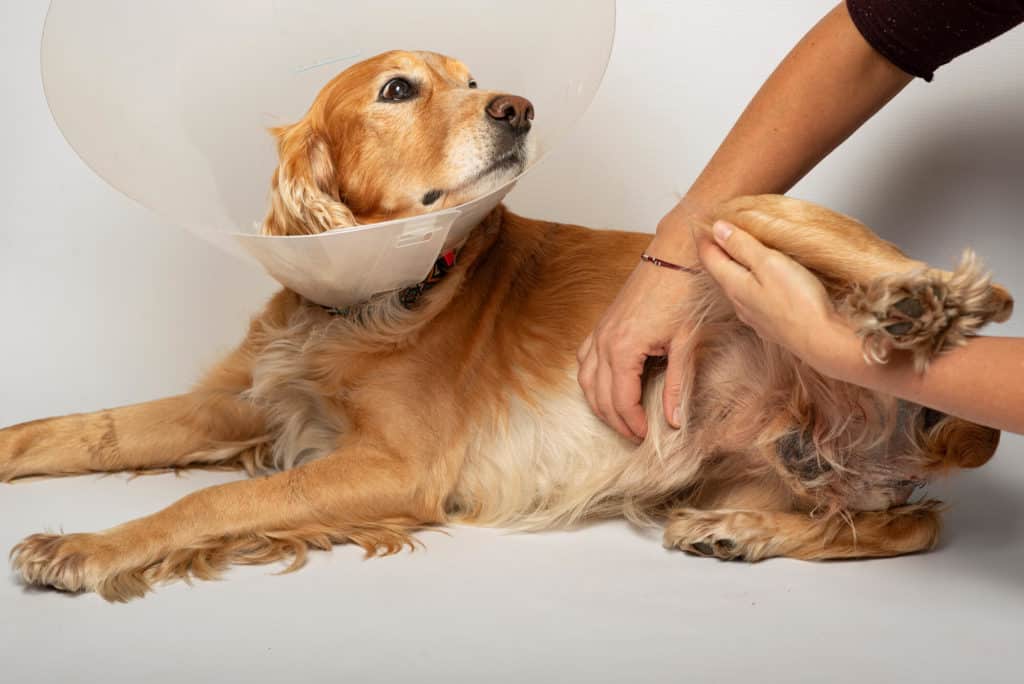Whether or not you should buy a puppy with an umbilical hernia is a matter of awareness. Make sure that you’re aware of the severity of the puppy’s condition and are prepared to deal with the consequences.
If you are, then by all means go ahead and make the little fur ball the newest addition to your family.
Bringing a new puppy into your family is a huge step. There are many factors and considerations that go into this decision.
The factors that are talked about the most are the puppy’s gender and breed. However, there are other highly important considerations that must be kept in mind.
Before buying a puppy, you should make sure to be aware of any defects or conditions the puppy suffers from. Umbilical hernias are one of the most common genetic defects in puppies.
Should you buy a puppy with an umbilical hernia? If you have, how should you deal with your puppy’s condition?
Read on to find out.

Helpful Dog Training Resource:
For help with training your dog, you should take a look at The Online Dog Trainer by Doggy Dan. Doggy Dan is an expert Dog Trainer based in New Zealand. His online resource contains Hundreds of Excellent Dog Training Videos that will take you step-by-step through the process of developing a healthy, happy well-behaved dog.
Buying a Puppy With an Umbilical Hernia: Yes or No?
If a puppy has a hernia, chances are it’s an umbilical one. An umbilical hernia is usually a harmless birth defect that can go away on its own or be corrected through minor surgery.
The degree to which an umbilical hernia will affect a puppy depends on the hernia’s size.
Larger hernias or hernias that are progressively getting bigger are what you should be wary of. Puppies with relatively large umbilical hernias are prone to serious complications down the road.
This is also true for hernias that cause visible discomfort to a puppy when touched.
In these cases, you should keep in mind that the puppy is likely to need significant medical attention and care. You should also note that this may be an increased financial burden.
What Is an Umbilical Hernia?
Before a puppy is born, it gains nourishment from its mother through its umbilical cord. This is the connection between the puppy and its mother’s placenta.
When the little pup enters the world, it has no further use for the umbilical cord. Therefore, the cord is usually chewed off by the mother or is cut off and sealed by the breeder.
The remnants of the umbilical cord form the puppy’s belly button.
In some cases, the area from which the umbilical cord is cut off fails to close up fully. This condition is referred to as an umbilical hernia.
Symptoms of Umbilical Hernia in Puppies
Here are the things you should look out for to check if your puppy has an umbilical hernia.
Physical Symptoms
- Lay the puppy on its back and Inspect its belly for a small opening at the belly button.
- Check the size of the opening. If it’s no bigger than the tip of your pinky finger, then it shouldn’t be an issue.
- If the opening is bigger, the puppy’s internal organs may be slipping in and out of it. This is a major cause for concern, possibly requiring surgery.

Behavioral Symptoms
Severe hernias are likely to cause visible behavioral changes in your puppy, such as:
- Shying away from your touch.
- Standing stiffly with its back in an arched position.
- Reduced or non-existent appetite.
- Nausea and vomiting.
If you notice any of these signs, your best course of action is to visit your vet immediately.
How Serious Is an Umbilical Hernia in a Puppy?
In order to gauge the degree of severity of your puppy’s hernia, you must pay very close attention to its current size as well as any changes in it.
This is the key determining factor in the possibility of serious complications occurring down the line.
Hernias that are bigger than 0.4 inches should be addressed when your puppy is no older than 4 months.
This is done through a minor surgical procedure. You should only revert to surgery if the hernia is showing no signs of getting smaller.
On the other hand, hernias that are smaller than this are unlikely to cause your puppy any discomfort or pain. In fact, they actually seal off naturally in some cases.
In this case, your best course of action may be to leave it be and avoid any unnecessary surgery.
However, if you choose to do this, make sure to keep a close eye on it and take your puppy to the vet for check-ups regularly.
You should also look out for any changes in your puppy’s behavior.
Helpful Dog Health Resource:
Note: Our Health is #1 Priority. It should be no different for your dog. But you need to help him. The Ultimate Guide to Dog Health is the answer. This handy guide will help you recognize the symptoms of the health problems above. Get the knowledge to stay ahead of these terrible issues that can rob your lovely dog from vigor and life. Help your friend make it to 14 yrs+ without pain and suffering.
Surgery For Umbilical Hernia in Puppies
Many vets recommend carrying out surgery for umbilical hernias in puppies at the same time as neutering.
By combining the two procedures, your puppy will only have to go through anesthesia and recovery once instead of twice. Going about it this way will also be a cost-saver for you.
However, if your puppy’s intestines protrude from the hernia and get trapped, immediate surgery will be required.

The procedure itself is a minor one. The vet removes the scar tissue surrounding the area and closes off the opening. Umbilical hernia surgery will set you back an average of $200.
Although this is a simple procedure, it’s still intrusive surgery. Therefore, you should only subject your puppy to this if it’s absolutely necessary.
Alternative Treatment For Umbilical Hernia in Puppies
You may be unable to get your puppy surgery or be unwilling to due to the risks involved. In this case, there’s an alternative method of dealing with your puppy’s hernia that you can try.
Some people have found success in reducing the size of their puppy’s umbilical hernia through the use of a belly wrap.
The idea is to help keep your puppy’s intestines and internal tissues from protruding out of the opening.
This can allow your puppy’s hernia to heal by itself without anything getting in the way.
Although this treatment has yielded positive results in some cases, it isn’t guaranteed to work.

Paul has been creating content for the dog niche for many years. The information he shares comes his first hand experience growing up in dog lovers household and then owning multiple dog breeds of his own as an adult. Paul enjoys doing the hard research to collect, analyze and present our dogtemperament.com readers with the best answers to their questions.